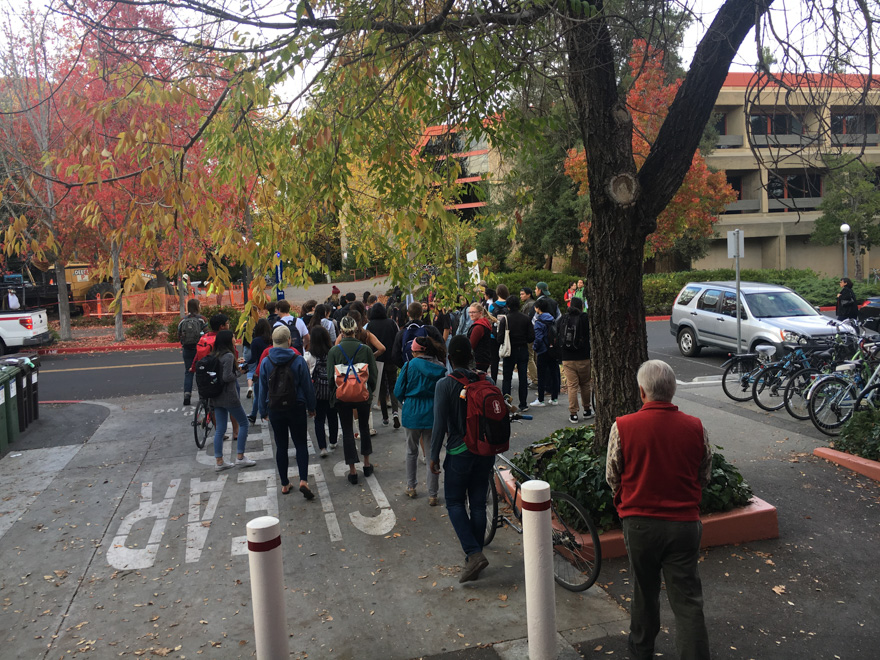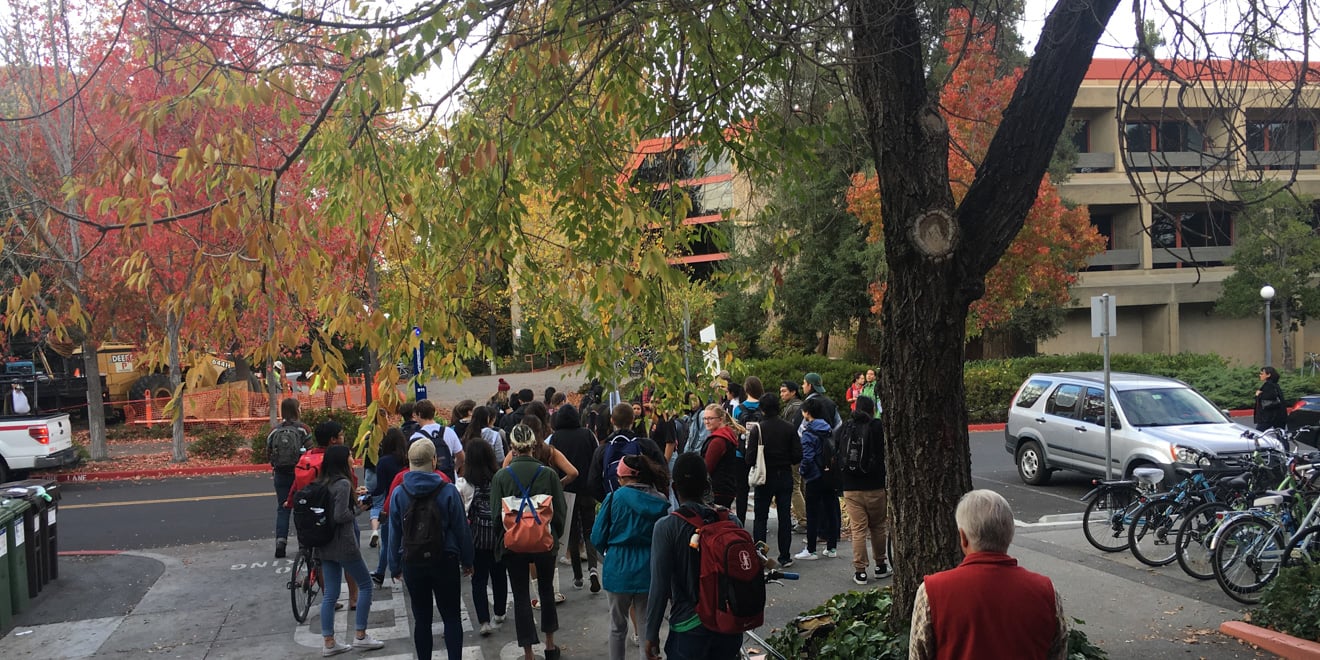A new Renaming Principles Committee, tasked with creating guidelines for the renaming of campus buildings and sites, was appointed by University President Marc Tessier-Lavigne earlier this month. The committee will be be chaired by Paul Brest, professor emeritus at Stanford Law School.
“The development of principles to inform decision-making is critical to ensure consistent analysis and treatment of different naming issues,” Tessier-Lavigne wrote in his formal letter to Brest announcing the formation of the committee. “The specific charge to the committee is to weigh all relevant considerations and develop criteria for making such decisions.”
The committee has been asked to finish its work by the end of winter quarter, after which a second committee will be appointed to consider the renaming of buildings and sites bearing the name of Junipero Serra, a Spanish colonizer and Catholic missionary now controversial for his and the mission system’s treatment of Native Americans.
“This [first] committee is not being asked to address Stanford-specific issues but rather to develop guidelines or principles or criteria that some subsequent committee could use,” Brest explained.

The two committees are replacing the Advisory Committee on the Use of Historical Names on Campus, which was formed in early 2016 and disbanded last November after it failed to form a recommendation on the issue of buildings named after Junipero Serra. ASSU President Justice Tention-Palmer ’18, who was involved in recommending potential student representatives to the first committee, said he hopes the distinction between the two committees will help avoid another stalemate.
“I think what would be most encouraging from this group is to reach some sort of consensus which wasn’t able to be done by the other group,” Tention-Palmer said.
Tention-Palmer also emphasized that he believes there should be no conflict within the group once it make its recommendation.
“I don’t think the goal of this committee should be to come to a majority decision,” he said. “I think the goal should be to come to a decision by consensus.”
Adding that he hopes the committee will be able to come to a decision within the expedited time frame, Tention-Palmer said features of the new committee that will make a standoff outcome less likely.
“I think splitting it into two [committees] was a huge difference in itself,” Tention-Palmer said. “It is also good that there are no committee members that are going to be continuing from the previous committee onto the new ones. Everyone will be fresh, everyone will have different perspectives.”
As guidance for the new committee, Tessier-Lavigne included various reports related to renaming that have been produced by similar groups at other universities, including the Working Group on Slavery, Memory and Reconciliation at Georgetown University and the Committee to Establish Principles on Renaming at Yale University.
“While every university has its own unique culture, major research universities have a lot in common, so I think our committee will learn a lot [from the reports],” Brest said.
Yale University’s committee was charged with outlining a set of principles to guide renaming decisions while simultaneously proposing potential changes to the names of buildings such as – but not limited to – Calhoun College, named after former vice president and vocal slavery advocate John C. Calhoun.
“The Yale committee’s goal was to create a framework for thinking about renaming in a university context,” John Fabian Witt, the chair of Yale’s committee and a professor at Yale Law School, wrote in an email to The Daily. “To do that we aimed to craft principles that would be rooted in the university’s core mission of producing, maintaining and disseminating knowledge.”
Witt also expressed his optimism regarding the potential of the Stanford committee.
“A committee led by Dean Paul Brest needs no advice from me,” Witt wrote. “ I have great admiration for Paul, and Stanford is lucky to have him leading the project.”
In addition to Brest, five faculty members will serve on the committee: Leon Sloss Jr. Memorial Professor and Professor Emeritus of History Albert Camarillo, Kenneth and Harle Montgomery Professor of Public Law Pam Karlan, Professor of Philosophy Krista Lawlor, Coe Professor of History and American Studies and Professor of Political Science Jack Rakove and Professor of Poverty and Equality in Education Sean Reardon, who is also a senior fellow at the Stanford Institute for Economic Policy Research.
University trustee LaTonia Karr, Vice President for Alumni Affairs Howard Wolf and two currently unnamed ASSU representatives will also serve on the committee along with the faculty members.
Although he did not want to prematurely comment on any potential findings of the committee, Brest said he was “optimistic that we will be able to report within the timeframe that Marc [Tessier-Lavigne] asked for.”
Contact Claire Dinshaw at cdinshaw ‘at’ stanford.edu.
